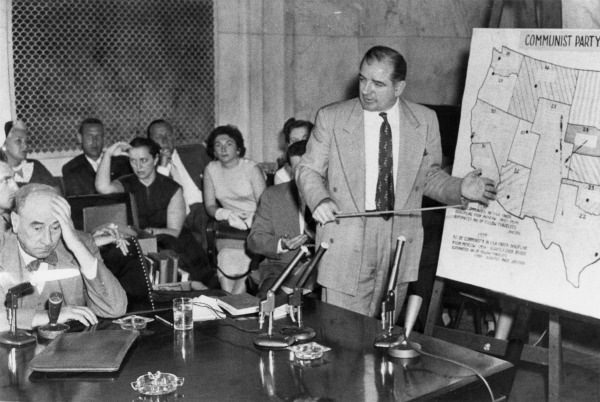
“I would like to speak briefly and simply about a serious national condition. The United States Senate has long enjoyed worldwide respect as the greatest deliberative body, but recently that deliberative character has been debased to a forum of hate and character assassination. Freedom of speech is not what it used to be in America. It has been so abused by some that it is not exercised by others.”
The year these words were spoken was not in 2025, but rather 1950 when Sen. Margaret Chase Smith, R-Maine, addressed the US Senate on her concerns about Sen. Joe McCarthy, R-Wisconsin.
It was during the height of the cold war when McCarthy claimed to possess the names of 205 card-carrying communists in the State Department. Smith, who shared McCarthy’s concerns about communist subversion like many of her colleagues at the time, grew skeptical when he repeatedly ignored her requests for evidence to back-up his accusations.
“It was then that I began to wonder about the validity and fairness of Joseph McCarthy’s charges,” said Smith.
As you can imagine, her speech triggered an explosion of both support and criticism. The Hartford Courant said, “this cool breeze of honesty from Maine can blow the whole miasma out of the nation’s soul.” She was called “Moscow-loving,” by her critics with McCarthy dismissing her and mocking her supporters as “Snow White and the Six Dwarfs.”
Smith went out on a limb and asked her fellow republicans not to ride to political victory on the “Four Horsemen of Calumny–Fear, Ignorance, Bigotry, and Smear.”

The end did not go well for McCarthy. In 1954, McCarthy charged there was lax security at a top-secret US Army facility. Boston lawyer Joseph Welch was hired by the army to make its case. At a session on June 9, 1954, McCarthy charged that one of Welch’s attorneys had ties to a Communist organization. During the national televised hearing, Welch responded with the immortal lines that ultimately ended McCarthy’s career:
“Until this moment, Senator, I think I never really gauged your cruelty or your recklessness.” When McCarthy tried to continue his attack, Welch angrily interrupted, “Let us not assassinate this lad further, senator. You have done enough. Have you no sense of decency?”
In December of 1954, the Senate belatedly concurred with the “lady from Maine” and censured McCarthy for conduct “contrary to senatorial traditions.” McCarthy’s career was over and died a broken man three years later at 48 years old.
It’s hard not to see similarities between what took place in the 1950’s and today’s politics. While it can feel a little unnerving living through these events in real time, there is comfort in knowing we have been here before and got through it and we can again.
